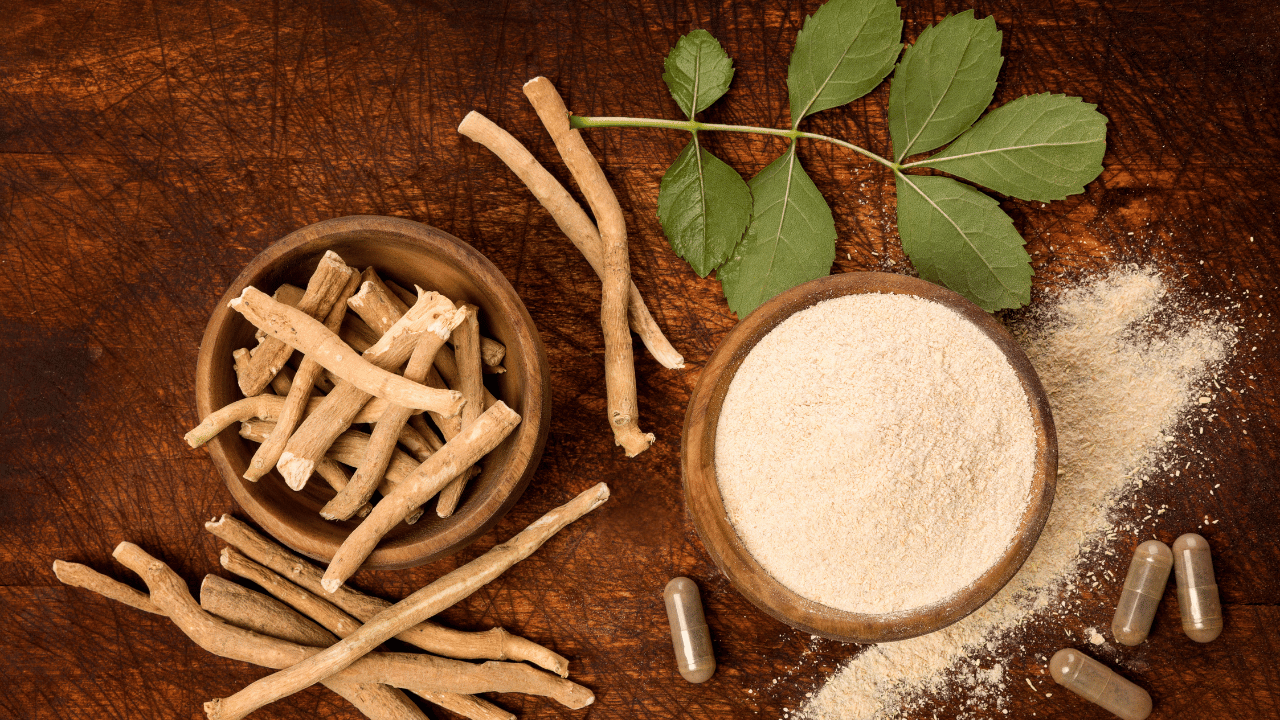#016 TCF: What you need to know about Ashwagandha
Apr 16, 2023
I was delighted and kinda tickled to see Ashwagandha make its debut in the New York Times this week. You can read the article here.
In many ways, Ashwagandha has been the gateway herb into Ayurveda for the West for many years. It was one of the first Ayurvedic herbs I really studied, worked with and used, when I began my journey.
When I first started leading cleanses, I always included it because I found most my clients were stressed out and could benefit from its calming effect. What I soon realized is, it's not for everybody and I became much more prudent before recommending it.
IMHO, the Times article is more a cultural piece on TikTok influence than anything delving into the science. So, I thought this would be a good opportunity to share more about its medicinal use.
The Ayurvedic perspective:
- Ashwagandha is commonly known as Winter Cherry or Indian Ginseng. The roots are used for medicinal purposes.
- It's almost mystical in Ayurveda as being able to be a tonic, helping to restore, tone and invigorate systems, and a sedative all at once.
- It's used to strengthen an exhausted nervous system while having the dual action of a calming effect.
- It’s considered a rasayana; rejuvenating not just the nervous system but all the tissues including building muscle.
- Its name translates to 'smell of horse' and if you’ve ever tasted it you’ll understand immediately. 😊 It’s is also said to refer to the stamina of a horse acting as aphrodisiac for men.
The Western Perspective:
- Ashwagandha is considered an adaptogen, an herb that helps the body adapt to stress.
- It is thought that its biomedical or therapeutic actions are due to its high concentrations of alkaloids, steroidal lactones, phytosterols and saponins.
- Alkaloids in plants, protect them from predators and regulate their growth. Therapeutically, alkaloids are particularly well known as anaesthetics, cardioprotective, and anti-inflammatory agents. Morphine is an example of a drug high in alkaloids.
- Steroidal Lactone - exhibits a wide range of biological properties, including immunomodulatory, anti-inflammatory, antistress, and anticancer activities.
- Phytosterols - lowers cholesterol, protects cardio and nerve tissue.
- Saponins - have powerful antioxidant effects and ability to ameliorate or reduce systemic inflammation.
Caution: I see lots of blogs and supplement companies making huge claims and pointing to a medical abstract or laboratory study. What is achieved in a petri dish is not always reproducible in humans. We cured cancer many times in a dish and in mice.
How to use it:
- It's the best herb for nourishing vata imbalances.
- For maximum effect it should be taken with warm milk or nut milk and a little ghee and honey.
- Buy the dried root from a reputable source so that way you know exactly what you're getting. Most Co-ops and Herb Stores carry the dried root. Mountain Rose Herbs is a good online source.
- Second option, buy the powder from a company that offers a 'Certificate of Analysis' so you can see what is in it.
Precautions:
- Ashwagandha is a nightshade so if you are sensitive or allergic to this group, it's not the herb for you.
- It is also shown to aggravate pitta and ama. Be cautious when using this in the heat of summer or with high pitta. It's personally too heating for me in summer and causes inflammation and skin breakouts.
- Be cautious when using this during pregnancy. It can act as a spasmolytic on the uterus and therefore contraindicated during pregnancy.
- Pair it with a behavior: always pair your herb with a supporting behavior. If you are using it for stress or sleep include daily breathwork or a good night routine. It’s not magic and benefits from your cooperation. 🙂
Why it will never be RCT (Randomized Controlled Clinical Trial):
SOAP BOX ALERT! At this point, I find the constant caveat that it needs "further clinical study" journalistically lazy and scientifically disingenuous.
- RCT needs a very specific disease to test the effectiveness against. By definition, an 'adaptogen' is an herb or mushroom that helps your body respond to stress, anxiety, fatigue and overall wellbeing. This is way too ambiguous and subtle for a primary endpoint in a clinical trial.
- Herbs, plants and mushrooms cannot be patented. Therefore, no one can own it as intellectual property meaning no one can monetize it.
- When you try to identify and separate out a unique compound from the plant, (so that you can patent it) and then manufacture its synthetic twin (aka pharmaceuticals) you tend to lose its secret sauce.
- Plants are exceptionally complex compounds. We still have poor understanding of how and why they work. What we do know is that tend to work synergistically, better as a whole then broken into separate compounds.
- It cost $100's of millions of dollars to run a clinical trial with pretty abysmal success rates. No one is going to bankroll a study that they cannot monetize.
I hope you found this helpful. If you ahve any questions about Ashwagandha or other herbs, please feel free to ask me.
Love and gratitude,
Anna
SUBSCRIBE FOR WEEKLY TIPS, TOOLS & STRATEGIES
We hate SPAM. We will never sell your information, for any reason.


